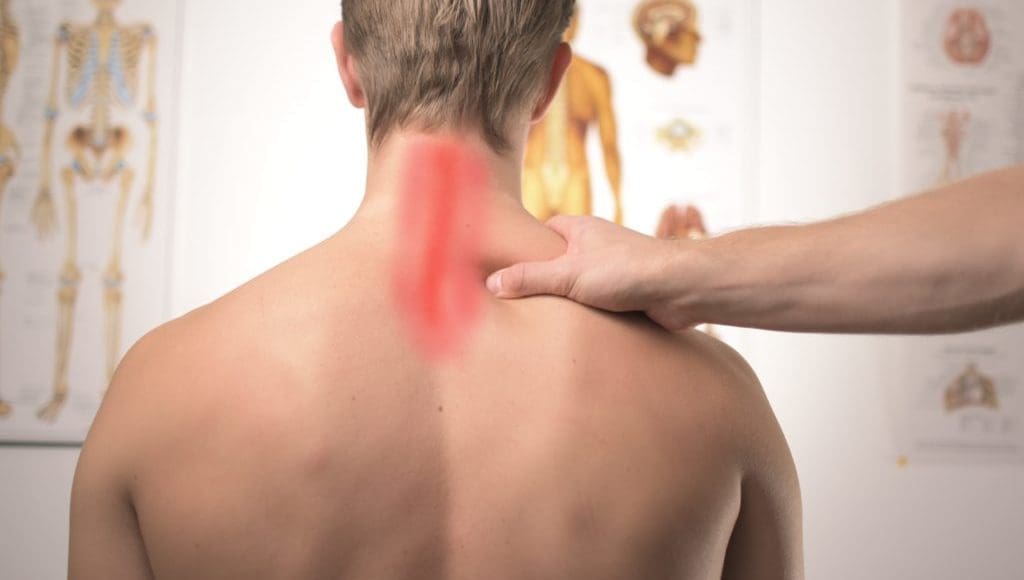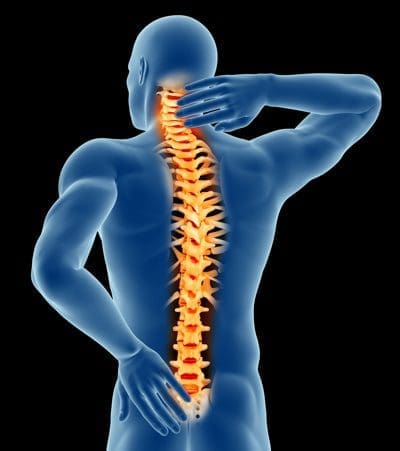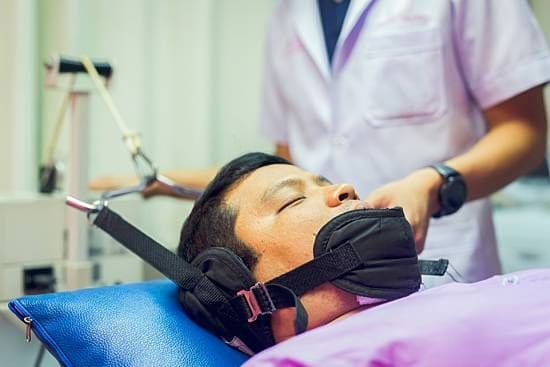Table of Contents
Introduction
The body is a well-tuned machine that is on the move constantly. The different systems like the musculoskeletal system, the immune system, and the joint system, to name a few, can help the body’s motor function to get the body from point A to point B. When injuries or auto accidents affect the body, it can cause various issues to affect the body over time. Many people who suffer from an auto accident injury will experience pain in the cervical and lumbar portions of their spine. It can be nerve-wracking as they are trying to comprehend what is happening. Today’s article will focus on herniation due to auto accidents, how it affects the spine, and how decompression treatments can help many suffering individuals with auto accident herniation. Referring patients to qualified and skilled providers who specialize in spinal decompression therapy. We guide our patients by referring to our associated medical providers based on their examination when it’s appropriate. We find that education is essential for asking insightful questions to our providers. Dr. Jimenez DC provides this information as an educational service only. Disclaimer
Can my insurance cover it? Yes, it may. If you are uncertain, here is the link to all the insurance providers we cover. If you have any questions or concerns, please call Dr. Jimenez at 915-850-0900.
How Do Auto Accidents Cause Herniation?
Have you experienced pain in your neck or low back? Did you experience whiplash in your neck? Has the pain progressively gotten worse after the accident? Many of the symptoms are primarily the after-effects of an auto accident involving a person. After a person has been involved in an auto accident, the injuries and symptoms usually occur within a few minutes until the next day. Research studies have shown that auto accident injury symptoms like herniation occur when the cervical and lumbar portions are injured, causing symptoms like soft tissue strain and disc derangement to be accompanied by radicular pain symptoms. Auto accident herniation also starts to compress the surrounding nerves around the spine. It induces inflammatory markers in the affected areas situated in the neck and lower back. Additional studies have found that auto accident herniation also affects the thoracic portion of the back. Many individuals that suffer from herniation will experience posterior shoulder pain and upper/lower back pain from being involved in an auto accident.
How Does It Affect The Spine?
When a person has suffered from an auto accident, the after-effects do take a toll not only on the body but the spine as well. The painful, inflammatory symptoms cause the soft muscle tissues to become tender to the touch. Research studies have mentioned that the spine will experience possible fractures along the lumbar section of the spine due to the force impact causing axial compression and overstretching of the muscles and soft tissues, causing sharp shooting pain. This makes the back and neck succumb to more despair after the auto accident occurs, thus hindering a person’s quality of life. More research studies have shown that many suffering individuals experience lumbosacral radicular pain on top of herniation. When a person has been suffering from disc degeneration and has been involved in an auto accident, the cascading effects cause the intervertebral disc’s outer layer to rupture and allow disc material displacement to cause herniation on the spine. When the ruptured disc becomes herniated, it will constantly press on the nerve roots, and any normal reactions like coughing or sneezing will worsen the pain. Thankfully, there are therapeutic methods that help alleviate herniation and help restore function to the spine.
Mechanical Traction For Herniation-Video
Feeling uncomfortable pain in your neck or back? Have everyday actions like coughing or sneezing hurt your back when not supposed to? Does the pain progressively get worst throughout the entire day? All these symptoms are due to disc herniation caused by auto accidents and can affect a person’s quality of life. The good news is that traction therapy may be the answer for relieving some of the symptoms like herniation on the spine. The video above shows how mechanical traction is used for many individuals suffering pain in the cervical area of the body. Traction therapy is a form of decompression treatment that is either non-surgical or surgical, depending on how severe the pain affects the body. Traction helps the spine through gentle pulling, causing the herniated discs to withdraw from the compressed nerves and establish healing properties to remoisturize in the affected discs while increasing the disc space between the spinal vertebrae. Decompression/traction therapy for either the lumbar or cervical regions of the spine has many beneficial factors in preventing disc herniation. This link will explain how decompression or traction offers impressive relief for many people who suffer from neck and low back pain herniation caused by auto accident injuries.
How Decompression Treatments Help Auto Accident Herniation
After a person suffers from an auto accident injury, the body will sometimes experience the painful effects the next day since the body has an adrenaline rush that masks the pain. When this happens, therapeutic methods help alleviate the pain and try to repair the body to be functional again. Research studies have shown that decompression treatments have helped many individuals suffering from herniation due to auto accidents by using unloading force traction from the therapy to reduce herniation on the spine. This opposing force helps ease the painful symptoms caused by disc herniation while the compressed nerves are relieved. Other research studies have mentioned that traction therapy, when utilized for herniation, causes vertebral separation to increase the disc space and decrease the nerve root compression. This allows the spinal ligaments to tense up, which is beneficial for the herniated discs to return to the spine and cause relief to the suffering individuals.
Conclusion
Overall the after-effects of an auto accident injury that causes the spine to become herniated affect a person’s quality of life. The painful symptoms cause compression to the surrounding nerve roots, sending pain signals to disrupt the brain and overstretch the muscles when the spine is injured. After the auto accident has occurred, the residual pain will cause tenderness in the cervical and lumbar portions of the spine causing even more pain to the person. Treatments like traction therapy allow individuals to find the relief they desperately need as the herniated disc is relocated to its original position and laid off on the nerve roots. Traction therapy provided beneficial relief to the spine due to negative pressure and brought back the spine’s functionality to the body.
References
Cornips, Erwin M J. “Crippling Upper Back Pain after Whiplash and Other Motor Vehicle Collisions Caused by Thoracic Disc Herniations: Report of 10 Cases.” Spine, U.S. National Library of Medicine, 20 May 2014, https://pubmed.ncbi.nlm.nih.gov/24718062/.
Hashish, Rami, and Hasan Badday. “Frequency of Acute Cervical and Lumbar Pathology in Common Types of Motor Vehicle Collisions: A Retrospective Record Review.” BMC Musculoskeletal Disorders, BioMed Central, 9 Nov. 2017, https://www.ncbi.nlm.nih.gov/pmc/articles/PMC5680606/.
Kumari, Anita, et al. “Effects of One-Fifth, One-Third, and One-Half of the Bodyweight Lumbar Traction on the Straight Leg Raise Test and Pain in Prolapsed Intervertebral Disc Patients: A Randomized Controlled Trial.” BioMed Research International, Hindawi, 16 Sept. 2021, https://www.ncbi.nlm.nih.gov/pmc/articles/PMC8463178/.
Oakley, Paul A, and Deed E Harrison. “Lumbar Extension Traction Alleviates Symptoms and Facilitates Healing of Disc Herniation/Sequestration in 6-Weeks, Following Failed Treatment from Three Previous Chiropractors: A CBP® Case Report with an 8 Year Follow-Up.” Journal of Physical Therapy Science, The Society of Physical Therapy Science, Nov. 2017, https://www.ncbi.nlm.nih.gov/pmc/articles/PMC5702845/.
Pachocki, L, et al. “Biomechanics of Lumbar Spine Injury in Road Barrier Collision-Finite Element Study.” Frontiers in Bioengineering and Biotechnology, Frontiers Media S.A., 1 Nov. 2021, https://www.ncbi.nlm.nih.gov/pmc/articles/PMC8591065/.
Suri, Pradeep, et al. “Inciting Events Associated with Lumbar Disc Herniation.” The Spine Journal : Official Journal of the North American Spine Society, U.S. National Library of Medicine, May 2010, https://www.ncbi.nlm.nih.gov/pmc/articles/PMC2919742/.
Disclaimer
Post Disclaimer
Professional Scope of Practice *
The information on this blog site is not intended to replace a one-on-one relationship with a qualified healthcare professional or licensed physician and is not medical advice. We encourage you to make healthcare decisions based on your research and partnership with a qualified healthcare professional.
Blog Information & Scope Discussions
Welcome to El Paso's Premier Wellness and Injury Care Clinic & Wellness Blog, where Dr. Alex Jimenez, DC, FNP-C, a board-certified Family Practice Nurse Practitioner (FNP-BC) and Chiropractor (DC), presents insights on how our team is dedicated to holistic healing and personalized care. Our practice aligns with evidence-based treatment protocols inspired by integrative medicine principles, similar to those found on this site and our family practice-based chiromed.com site, focusing on restoring health naturally for patients of all ages.
Our areas of chiropractic practice include Wellness & Nutrition, Chronic Pain, Personal Injury, Auto Accident Care, Work Injuries, Back Injury, Low Back Pain, Neck Pain, Migraine Headaches, Sports Injuries, Severe Sciatica, Scoliosis, Complex Herniated Discs, Fibromyalgia, Chronic Pain, Complex Injuries, Stress Management, Functional Medicine Treatments, and in-scope care protocols.
Our information scope is limited to chiropractic, musculoskeletal, physical medicine, wellness, contributing etiological viscerosomatic disturbances within clinical presentations, associated somato-visceral reflex clinical dynamics, subluxation complexes, sensitive health issues, and functional medicine articles, topics, and discussions.
We provide and present clinical collaboration with specialists from various disciplines. Each specialist is governed by their professional scope of practice and their jurisdiction of licensure. We use functional health & wellness protocols to treat and support care for the injuries or disorders of the musculoskeletal system.
Our videos, posts, topics, subjects, and insights cover clinical matters and issues that relate to and directly or indirectly support our clinical scope of practice.*
Our office has made a reasonable effort to provide supportive citations and has identified relevant research studies that support our posts. We provide copies of supporting research studies available to regulatory boards and the public upon request.
We understand that we cover matters that require an additional explanation of how they may assist in a particular care plan or treatment protocol; therefore, to discuss the subject matter above further, please feel free to ask Dr. Alex Jimenez, DC, APRN, FNP-BC, or contact us at 915-850-0900.
We are here to help you and your family.
Blessings
Dr. Alex Jimenez DC, MSACP, APRN, FNP-BC*, CCST, IFMCP, CFMP, ATN
email: coach@elpasofunctionalmedicine.com
Licensed as a Doctor of Chiropractic (DC) in Texas & New Mexico*
Texas DC License # TX5807
New Mexico DC License # NM-DC2182
Licensed as a Registered Nurse (RN*) in Texas & Multistate
Texas RN License # 1191402
ANCC FNP-BC: Board Certified Nurse Practitioner*
Compact Status: Multi-State License: Authorized to Practice in 40 States*
Graduate with Honors: ICHS: MSN-FNP (Family Nurse Practitioner Program)
Degree Granted. Master's in Family Practice MSN Diploma (Cum Laude)
Dr. Alex Jimenez, DC, APRN, FNP-BC*, CFMP, IFMCP, ATN, CCST
My Digital Business Card




